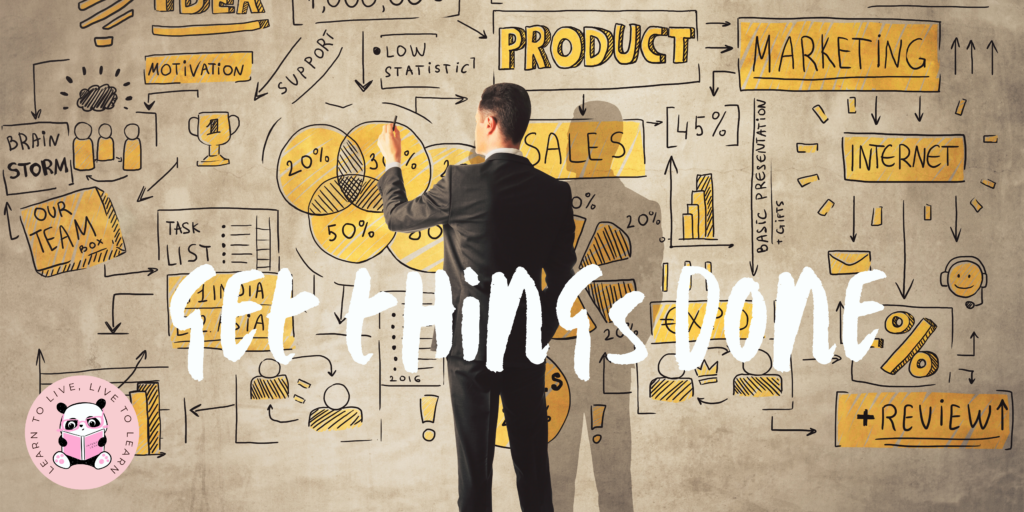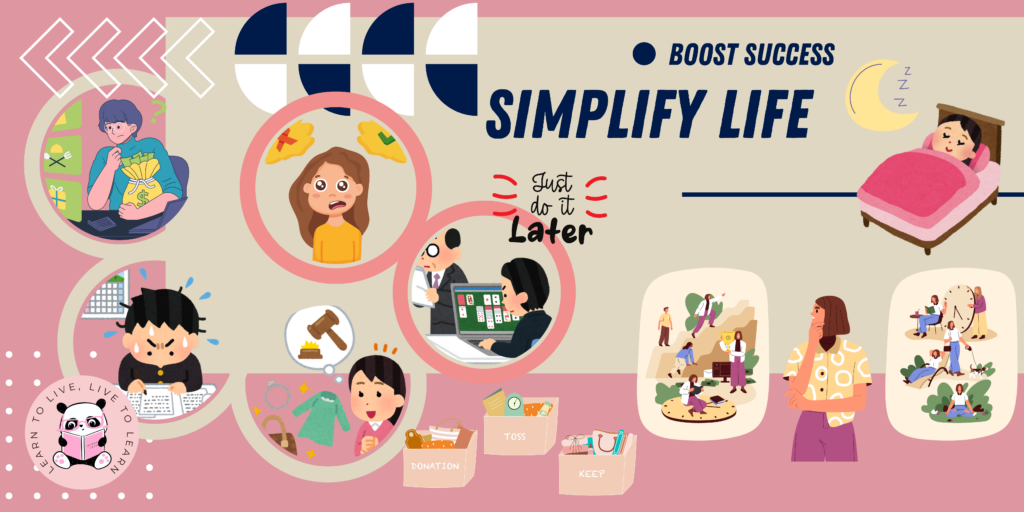11 Proven Ways to Make Smarter Choices in Life
Written by Michelle Ong | December 7, 2024

If you want a better life, start by making better choices—because every decision you make shapes your future.
“Good choices are the foundation for a good life.”
The decisions you make today influence where you’ll end up tomorrow—your career, your relationships, your growth, and your overall direction.
But our brains aren’t perfect. We rely on shortcuts, emotions, habits, and fear, which can cloud judgment—especially under stress or pressure.
Here are simple, science-backed ways to make smarter choices, especially when life—or work—feels messy or overwhelming.
1. Ask “Why?” Before Anything Else
“It’s not hard to make decisions when you know what your values are.” – Roy E. Disney
Most poor choices come from unclear intentions.
Before deciding, ask:
Why am I doing this?
Which value does this support?
Who will this choice help me become?
Research shows that values-aligned decisions reduce regret, increase follow-through, and strengthen motivation.
When your “why” is strong, direction becomes clear—and confidence follows.
💡Learn how understanding your ikigai clarifies purpose and makes decisions easier and more meaningful.
2. Simplify the Decision
Overthinking drains mental energy and leads to “decision paralysis.”
Instead of spiraling in “what ifs,” simplify by trying:
A quick pros-and-cons list.
Talking it out with someone neutral.
Asking: What is the simplest meaningful next step?
Reducing cognitive load helps the brain process information more accurately.
Clarity often appears when you remove the noise.
3. Stay Objective (Especially When Emotional)
Emotions matter—but they’re not reliable decision-makers.
Instead:
Pretend a friend asked for advice. What would you tell them?
Ask: Is this aligned with my values—or my impulses?
Look at effort vs reward, not just how you feel right now.
Research shows that “psychological distancing” improves judgment and reduces bias.
Let logic anchor you when emotions rise.
💡Check out simple techniques to stay calm and grounded.
4. Accept That Effort Is Part of Every Good Decision
The brain is wired to choose easy, short-term rewards (dopamine loops), even when long-term consequences are worse.
In careers, this often looks like:
Choosing comfort over growth.
Staying silent instead of speaking up.
Avoiding a new opportunity because it’s unfamiliar.
Picking speed over quality.
Good decisions often require discomfort, consistency, and delayed gratification.
Effort is not a sign you’re on the wrong path—it’s a sign you’re building something worthwhile.
5. Zoom Out and See the Big Picture
“The hardest thing in life is to know which bridge to cross and which to burn.” – David Russell
Big-picture thinking reduces anxiety and helps decisions feel less overwhelming.
Try these mental shortcuts:
Will this matter next week?
One year from now, will I regret not starting?
What would my future self advise?
This shifts your brain from short-term survival mode to long-term strategic thinking—critical for career and personal growth.
6. Beware Of Self-Sabotage
“In every moment of our lives, we are faced with decisions that will either lead us toward or away from who we want to be.”
We all fall into patterns—pride, avoidance, assumptions, insecurity—that distort decision-making.
Ask:
Am I avoiding something uncomfortable?
Am I assuming without evidence?
Have I repeated this mistake before?
Awareness interrupts autopilot behavior and makes space for better choices.
💡Identify the habits that may be quietly sabotaging your growth.
7. Get Comfortable With Discomfort
You will never have all the information.
Perfectionism and fear of mistakes keep people stuck for years.
Instead:
Make the best decision with the information available.
Treat choices like experiments, not life sentences.
Start small → test → adjust → grow.
This removes pressure and increases resilience.
8. Name Your Fears
Fear disguises itself as “logic” and stops forward movement.
Common fears:
failure, judgment, regret, inadequacy, wasting effort, losing control.
Tim Ferriss’ fear-setting is powerful:
Define the fear.
Describe the best-case scenario.
Plan how you’d recover if things go wrong.
Naming fears reduces their emotional charge and increases clarity.
9. Trust Your Gut
Intuition is real—it’s your brain recognizing patterns faster than conscious logic.
If something feels off, pause.
Your gut often catches:
Mismatched values.
Subtle red flags.
Unaligned opportunities.
People or environments that drain you.
Intuition is data. Combine it with logic for balanced decisions.
10. The 10-10-10 Rule
Ask yourself:
How will I feel about this in…
10 minutes?
10 months?
10 years?
This widens your time horizon and prevents emotionally driven or impulsive decisions.
This rule is especially helpful for money, career, and relationship choices.
11. Work With Your Body
Your decision quality follows your biology.
Research shows decision-making is sharpest when:
You’re well-rested.
You’re not hungry.
You’re not mentally overloaded.
You’re during your natural chronotype peak.
Morning people think best earlier; night owls peak later.
Match important decisions to your mental energy—not to your calendar.
Final Thoughts
“We are our choices.” – Jean-Paul Sartre
Your life today is the sum of your decisions so far.
If you want a better future, start making better choices—ones rooted in clarity, values, purpose, and courage.
Here are simple rules to remember:
Don’t decide when overwhelmed.
Give yourself space to think.
Trust your own judgment—don’t outsource every decision.
Small improvements in the way you choose can redirect the entire trajectory of your career and life.
💡Curious why we make poor choices? Explore common decision-making pitfalls that hold people back.
🌱 Reader Reflection
What is one important decision you’ve been avoiding—and what’s the simplest next step you can take today?


